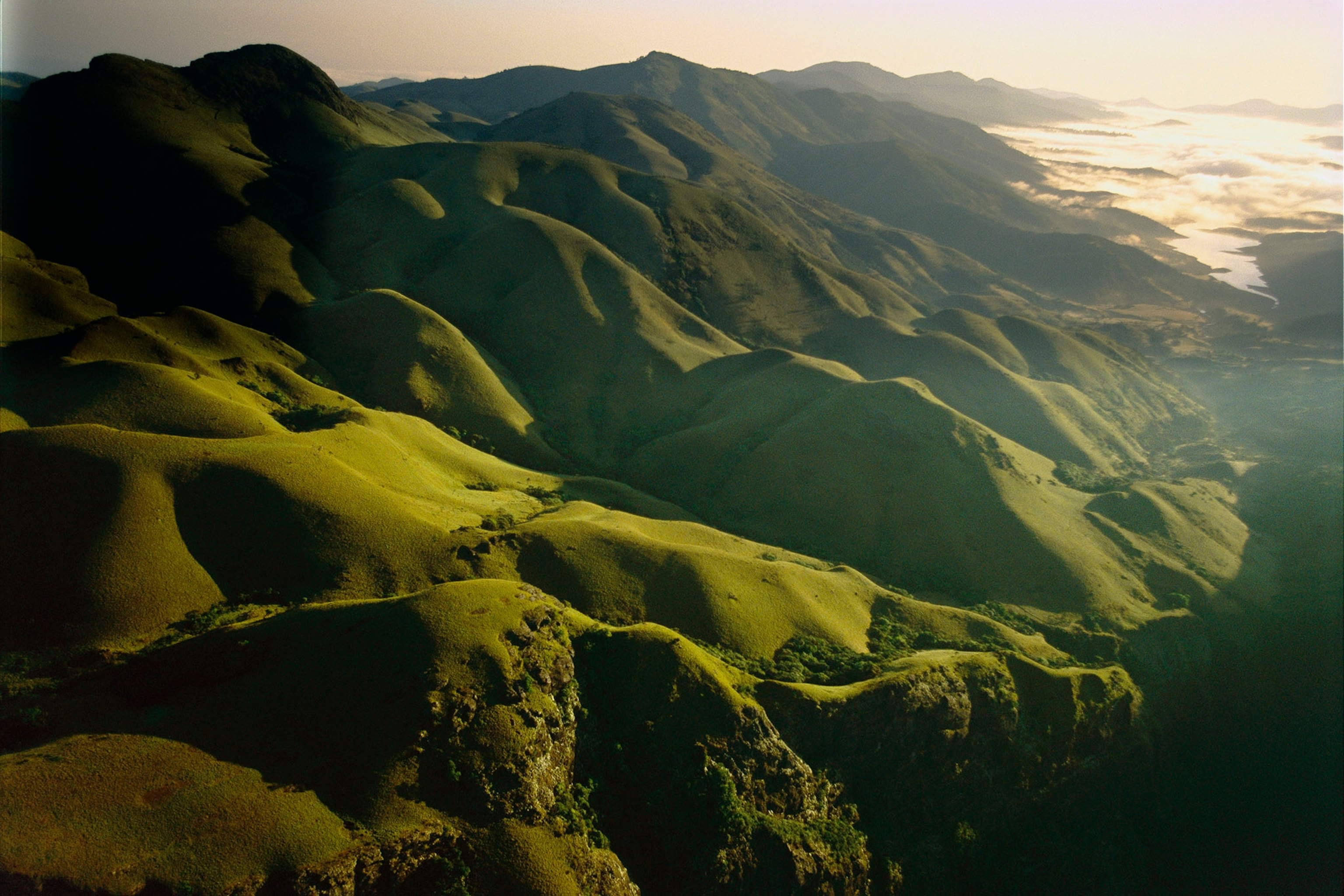
Volcanoes, Then an Asteroid, Wiped Out the Dinosaurs
Several species went extinct before the impact 66 million years ago, adding to evidence that volcanoes were a culprit in the mass die-off.
What killed the dinosaurs? Few questions in science have been more mysterious—and more contentious. Today, most textbooks and teachers tell us that nonavian dinosaurs, along with three-fourths of all species on Earth, disappeared when a massive asteroid hit the planet near the Yucatán Peninsula some 66 million years ago.
But a new study published in the journal Geology shows that an episode of intense volcanism in present-day India wiped out several species before that impact occurred.
The result adds to arguments that eruptions plus the asteroid caused a one-two punch. The volcanism provided the first strike, weakening the climate so much that a meteor—the more deafening blow—was able to spell disaster for Tyrannosaurs rex and its late Cretaceous kin.
Whereas most geological evidence about the mass extinction has been gathered from the North American continent, Laiming Zhang at China University of Geosciences in Beijing and his colleagues looked toward northern China. The region, they argue, is far enough from both the impact crater in Mexico and the ancient lava flows known as the Deccan Traps in India, that it’s an ideal location to test for far-ranging climatic signals related to both events.
The team analyzed ancient sediments at the bottom of a lake basin and found that the lake’s temperature started to rise hundreds of thousands of years before the impact. That warming coincides with eruptions at the Deccan Traps in India, which likely spewed immense amounts of carbon dioxide into the atmosphere well before the impact. (Recent research also suggests that the dino-killing asteroid hit just the right place on Earth to cause the mass extinction.)
Although that jives with previous data showing pre-impact temperature swings across the world, the team also made a more alarming find. Zhang and his colleagues discovered that many fossils within the ancient sediments disappeared at the time of this warming. Two-thirds of the extinctions within the region actually occurred after the onset of volcanism and before the impact.
As such, the study provides proof that the volcanoes destabilized the climate, priming the world for catastrophe, argues co-author Paul Wignall, a paleontologist at the University of Leeds.
“Our paper swings the pendulum back a little more toward volcanism,” he says.
Climate Catastrophe
A hotter climate certainly helped send the nonavian dinosaurs to their early grave, says Paul Renne, a geochronologist at the University of California, Berkeley, who was not involved in the study. That’s because the uptick in temperature was immediately followed by a cold snap—a drastic change that likely set the stage for planet-wide disaster.
Imagine that some life managed to adapt to those warmer conditions by moving closer toward the poles, Renne says. “If you follow that with a major cooling event, it’s more difficult to adapt, especially if it’s really rapid,” he says.
In this scenario, volcanism likely sent the world into chaos, driving many extinctions alone and increasing temperatures so drastically that most of Earth’s remaining species couldn’t protect themselves from that second punch when the asteroid hit.
“The dinosaurs were extremely unlucky,” Wignall says.
But it will be hard to convince Sean Gulick, a geophysicist at the University of Texas at Austin, who co-led recent efforts to drill into the heart of the impact crater in Mexico. He points toward several studies that have suggested that ecosystems remained largely intact until the time of the impact.
While he admits that the new research does suggest there was some early ecological distress that coincided with the Deccan Traps volcanism, he would like to see evidence of this trend in places other than China.
“There isn’t anything about that single basin that equals a global phenomenon,” he says.
Additionally, a forthcoming paper might make an even stronger case that the impact drove the extinction alone, notes Jay Melosh, a geophysicist at Purdue University who has worked on early results from the drilling project. It looks as though the divisive debate will continue with nearly as much ferocity as the events that rocked our world 66 million years ago.